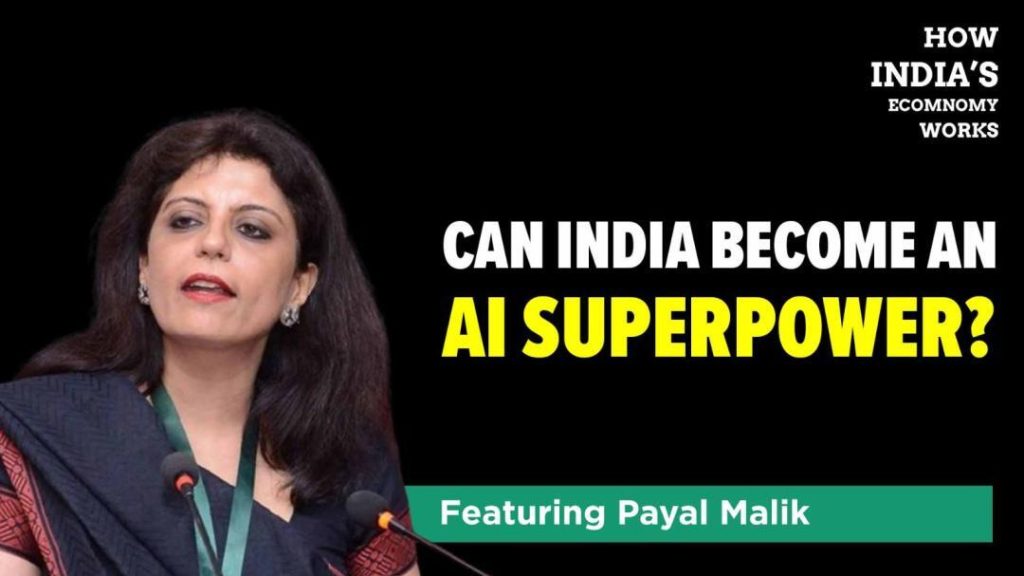
Can India become an AI powerhouse?
India’s aspirations to become an Artificial Intelligence (AI) powerhouse face significant challenges, according to economist Payal Malik. Despite boasting a strong digital talent pool and vast data resources, India’s AI ambitions are hindered by weak computing infrastructure, limited research and development (R&D), and an over-reliance on Big Tech. Malik emphasizes that without bold competition policies and deeper investment in startups, India may struggle to achieve its goal of becoming an AI superpower – despite initiatives like AIRAWAT, a national AI research program launched by the government.
In recent years, India has made significant strides in AI research and development. The country has become home to several prominent AI startups, and major tech giants like Google, Microsoft, and Amazon have set up AI research centers in the country. Additionally, initiatives like the AI for All (AI4All) program, launched by the Indian government, aim to promote AI innovation and entrepreneurship.
However, despite these efforts, India still faces several challenges that hinder its progress towards becoming an AI powerhouse. One of the primary concerns is the lack of robust computing infrastructure, which is essential for AI research and development. India’s computing infrastructure is still largely dependent on older technologies, which limits its ability to process large amounts of data and conduct complex computations.
Another major challenge is the limited R&D in AI. While India has made significant progress in AI research, it still lags behind countries like the United States, China, and the European Union in terms of the scale and breadth of its AI research endeavors. This limited R&D capability restricts India’s ability to develop innovative AI solutions and compete with other countries in the global AI landscape.
Furthermore, India’s over-reliance on Big Tech poses a significant risk to its AI ambitions. While partnering with Big Tech companies can bring in resources and expertise, it also poses a risk of dependency and limited innovation. India needs to focus on developing its own AI capabilities and reducing its reliance on foreign companies to achieve its goals.
Malik emphasizes that bold competition policies are essential to overcome these challenges. This includes promoting domestic AI startups and encouraging competition among Big Tech companies. The government also needs to provide incentives for R&D investment and create a favorable regulatory environment to promote AI innovation.
Another crucial aspect is the need for deeper investment in startups. India needs to focus on creating a robust startup ecosystem that can support AI innovation and entrepreneurship. This requires creating a favorable business environment, providing access to funding, and offering resources and expertise to startups.
In recent years, the Indian government has launched several initiatives to boost AI innovation and entrepreneurship. For instance, the government has launched programs like the AI for All (AI4All) program, which aims to promote AI innovation and entrepreneurship. Additionally, the government has set up AI research centers and incubators to support AI startups.
Despite these efforts, India still faces significant challenges in becoming an AI powerhouse. The country needs to focus on developing its computing infrastructure, increasing R&D investment, and promoting domestic AI startups. The government also needs to create a favorable regulatory environment and provide incentives for AI innovation.
In conclusion, while India’s AI ambitions face several challenges, the country has the potential to become an AI powerhouse if it addresses these challenges and focuses on developing its AI capabilities. The government needs to implement bold competition policies, invest in startups, and create a favorable regulatory environment to support AI innovation and entrepreneurship. With the right strategies and investments, India can become a leading player in the global AI landscape.
Source: https://youtu.be/HHwIEtTv334






